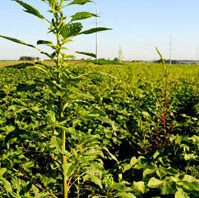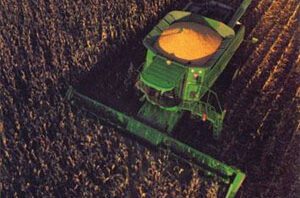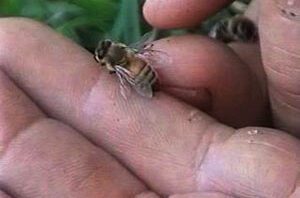This week the Wall Street Journal took note of a trend farmers have understood for years: Monsanto's Bt corn, genetically modified to protect the plants from rootworm, is no longer working. And as a result, many farmers are now rapidly ramping up use of insecticides to protect their crops.
This is not unexpected. When Bt corn was introduced back in 1995, PAN joined organic growers in raising the alarm about the long term impacts of the technology. Widespread and continuous use of Bt meant the development of resistance was inevitable, and organic farmers knew this meant one of their most effective pest control tools would be rendered useless.
Bt plants produce an insecticidal toxin, one of a family of related molecules naturally produced by a soil bacterium, Bacillus thuringiensis (Bt). To develop these Bt crops, a corporation clones the insecticidal gene from the bacterium and inserts it into a crop plant. The plant then produces the toxin in most, if not all, parts of the plant through all or most of a growing season.
This application of Bt made insect resistance unavoidable. Here's PAN's take more than 10 years ago, as we covered EPA's disappointing decision to renew Bt corn in 2002:
Toxins in Bt sprays break down rapidly in the environment as opposed to the Bt in genetically engineered crops, which breaks down very slowly. With widespread use of Bt crops, there is increased insect exposure to the toxin, and insect resistance is much more likely to develop resulting in the loss of Bt sprays as a valuable tool.
Now the resistance has developed, and the Bt tool is lost. Both conventional and organic farmers will miss this effective means of controlling pests. But as the Wall Street Journal notes, the new surge in insecticide sales is a welcome development for the Big 6 pesticide corporations:
Syngenta, one of the world's largest pesticide makers, reported that sales of its major soil insecticide for corn, which is applied at planting time, more than doubled in 2012.
And as our colleagues at the Union of Concerned Scientists report, the Wall Street Journal article actually underestimates the "pesticide comeback," as the dramatic jump in seed treatment applications — a use in corn fields that's been linked to honey bee harms — was completely overlooked.







